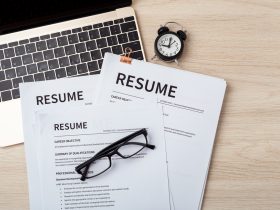Defining Clear Objectives
If you are wondering how to conduct an effective interview, setting clear goals at the beginning of the interview process is essential. This entails comprehending the role, required skills, and attributes, and integrating them into the company culture. A profound understanding of what you seek empowers you to craft questions honed toward specific competencies and traits.
For instance, when hiring a project manager, the focus may lie on organizational prowess, leadership acumen, and adeptness in problem-solving. Such clarity guides your inquiries, aiding in a more astute evaluation of each candidate.
Cultivating a Relaxed Atmosphere
A comfortable and inviting setting is pivotal for an interview to yield the desired results. Creating an environment where body language can be observed is among the effective interviewing techniques for employers. Candidates are more likely to be candid and forthright when they feel at ease. Begin with a warm welcome, introducing yourself and the team, and outlining the interview’s format.
During the interview, keenly observe their body language. Is there engagement and ease, or do they appear guarded and tense? A welcoming environment is instrumental in gauging a candidate’s personality and potential compatibility within the company.
Leveraging Behavioral Interviewing Techniques
Behavioral interviewing techniques wield substantial influence in gauging a candidate’s future performance based on their past conduct. Rather than speculative inquiries, the focus is on concrete situations the candidate has encountered in prior roles.
For instance, rather than posing a hypothetical question like, “How would you meet a tight deadline?” you might inquire, “Could you recount an instance when you had to meet a stringent deadline? What steps did you take, and what were the outcomes?” This approach furnishes tangible examples of the candidate’s capabilities and enables you to assess their proficiency in problem-solving and decision-making.
Active Listening and Probing
Effective interviewing hinges on active listening. Devote your complete attention to the candidate, avoiding interruptions. This not only manifests respect but also allows for a more comprehensive understanding.
Following a candidate’s response, delve deeper with probing questions to gain heightened insights. Should they mention a triumphant project that delves into the specific challenges they encountered and their strategies to surmount them? These follow-up inquiries have the potential to unearth invaluable details that might otherwise have remained concealed.
Evaluating Cultural Alignment
Aligning with the company’s values and culture is equally vital as assessing technical prowess and experience. While a candidate might boast an impressive resume, a misalignment in values and culture can lead to discord in the future.
Throughout the interview, pose questions that offer insight into the candidate’s work style, communication preferences, and approach to challenges. Additionally, openly discuss the company’s culture and allow the candidate to seek clarification. This reciprocal understanding is pivotal in fostering a harmonious and productive team.
Employing Situational Interviews
Situational interviews present hypothetical scenarios that candidates might encounter in the role they aspire to fill. This technique evaluates a candidate’s problem-solving aptitude, decision-making prowess, and approach to specific challenges.
For example, in hiring for a customer service role, you might present a scenario where a customer expresses dissatisfaction with a product. Inquire how the candidate would navigate this situation. Pay heed not only to the proposed solution but also to the thought process that underlies it.
Executing Structured Panel Interviews
Panel interviews involve multiple interviewers drawn from various organizational departments or teams. This approach yields a more comprehensive evaluation of the candidate and mitigates individual biases.
Each panel member can focus on specific facets, be it technical proficiencies, cultural compatibility, or leadership potential. Post-interview, panel members can compare their assessments, culminating in a more holistic and equitable decision.
Conducting effective interviews is a linchpin skill that profoundly influences your hiring decisions and, consequently, your team’s success. By delineating clear objectives, establishing a comfortable environment, employing behavioral interviewing techniques, actively listening, assessing cultural alignment, employing situational interviews, and executing structured panel interviews, you ensure that your decisions when onboarding new talent are well-informed. An effective interview is not solely about evaluating candidates; it also allows candidates to assess your company. By showcasing your dedication to a meticulous and thoughtful hiring process, you draw genuinely enthusiastic candidates about contributing to your organization’s triumphs. Mastery of these effective interviewing techniques is a catalyst for improved hires and the cultivation of a more robust, cohesive team in the long term.









